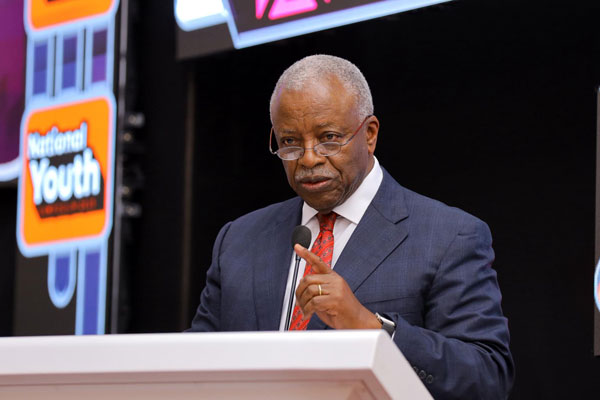Uganda’s political landscape has long been shaped by uncertainty and the dominance of powerful personalities rather than robust institutions. Against this backdrop, former Prime Minister John Patrick Amama Mbabazi’s recent remarks at the third National Youth Symposium at Makerere University have reignited a crucial conversation about the nature of leadership transitions in Uganda and across Africa. Mbabazi’s central message was clear: for democracy to thrive, leadership change must be predictable, process-driven, and rooted in strong institutional frameworks—not left to the whims of individuals.
The Case for Institutionalized Leadership Transitions
Mbabazi, who served as Secretary General of the ruling National Resistance Movement (NRM) and was a presidential candidate in 2016, emphasized the urgent need for political parties and the nation as a whole to institutionalize mechanisms for smooth leadership transition. He argued that predictable, process-driven change—anchored in term limits, clear succession protocols, and inclusive nomination processes—demonstrates accountability and ensures continuity of vision. This approach, he suggested, is essential for building public trust and safeguarding the future of Uganda’s democracy.
His remarks come at a pivotal moment, as Uganda reflects on two decades since the return of multiparty politics. The country’s post-independence history has been marked by periods of constitutional suspension, military rule, and ad hoc governance, often resulting in abrupt and sometimes violent changes in leadership. By advocating for process-driven transitions, Mbabazi is calling for a break from this tumultuous past and a move towards a more stable, predictable political environment.
Lessons from Uganda’s Political History
Uganda’s experience with leadership change has often been fraught with unpredictability. After gaining independence in 1962 under a multiparty system, the country saw the system dismantled in 1969, followed by years of instability. The dominance of the NRM under President Yoweri Museveni—now in power for nearly four decades—has been characterized by a personalization of authority, with party structures frequently subordinated to the interests of the leader.
Internal conflicts within the NRM, such as the ouster of Mbabazi himself from key party positions, have highlighted the dangers of weak institutionalization. The lack of clear, respected processes for leadership selection and succession has led to internal strife, legal battles, and a growing sense of disenfranchisement among party members and the wider public. In contrast, Mbabazi points to the need for reforms that prioritize party cohesion, transparent candidate nomination, and the management of primaries—measures that can restore confidence and reduce the risk of destabilizing power struggles.
The Role of Youth and the Future of Democracy
Mbabazi’s address was delivered at a symposium focused on the role of young people in building a democratic, united, and prosperous Uganda. With nearly 78 percent of Ugandans under the age of 30, the youth will play a decisive role in shaping the country’s future. Mbabazi’s message to them was implicit: only by insisting on predictable, process-driven leadership change can Uganda ensure that the aspirations of the next generation are met, and that the mistakes of the past are not repeated.
He urged political parties to actively identify, nurture, and equip future leaders—not just for the sake of continuity, but to ensure that leadership reflects the diversity and dynamism of Ugandan society. This, he argued, is the only way to build a resilient democracy capable of withstanding the pressures of personality-driven politics.
Conclusion: A Call for Democratic Maturity
Amama Mbabazi’s call for predictable, process-driven leadership change is both timely and necessary. It challenges Uganda—and other nations with similar histories—to move beyond the era of strongmen and embrace a future where institutions, not individuals, determine the course of leadership. By embedding term limits, succession protocols, and transparent nomination processes into the fabric of political life, Uganda can lay the foundation for genuine democracy, stability, and prosperity. The journey will not be easy, but as Mbabazi’s own career illustrates, it is both possible and essential for the nation’s progress.

